PhD and MSc students of the SustainSahel project
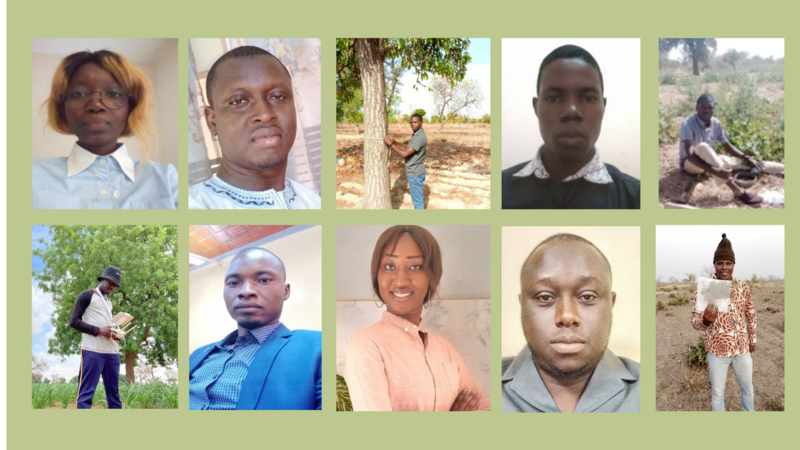
In the scope of the SustainSahel project, mutiple PhD and MSc theses are underway across the work packges. Here you find an overview of the students involved in the projects, their background and research goals.
Students from ISRA in Senegal
Introducing Aminata Beye
Born in Thiès in Senegal, Aminata Beye is an enterprising woman. Passionate about agriculture, she never ceases to deepen her knowledge in order to better serve her country and accomplish her dreams. She holds a Master's degree in Agroforestry-Ecology-Adaptation at the Department of Plant Biology at the Faculty of Science and Technology of the Cheikh Anta Diop University of Dakar (UCAD), she is a professional in her field and an activist in environmental protection. She wishes to put her knowledge and skills at the service of farmers to change the face of Senegalese and African agriculture. She is a Research Fellow at ISRA - Senegalese Institute of Agricultural Research, in Sénégal and a PhD student in the SustainSahel project. More specifically, she works closely with Work Package 6: Benefits of shrub foliage for livestock.
Her thesis research theme is the design of integrated and sustainable systems (crops, shrubs and animals) favorable to the mitigation of greenhouse gas emissions in the sylvopastoral zone of Senegal. The general objective of this thesis is to contribute to the design of sustainable SLC systems for the improvement of i) livestock nutrition, health and production, ii) manure quality, iii) soil fertility and iv) enteric GHG emissions.
Specifically, the project will:
- Identify the shrub foliage available in situ and among them the most palatable;
- Define feed rations based on the selected foliage;
- Determine the effect of the food rations on the animals monitored;
- Determine the effect of soil amendments by applying animal manure derived from foliage versus direct mulching of shrubs.

Students from IER in Mali
Introducing Salouma Macalou
Salouma Macalou is a research associate working in the fruit and vegetable programme of the IER - Institute of Rural Economy, Mali. He is an agricultural and rural engineer by training and holds a masters’ degree in soil science from Egerton University in Kenya.
Mr. Macalou is currently undertaking a PhD in the SustainSahel project. His thesis work is focused on the “Effect of organo-mineral fertilisation on the bio-physical-chemical characteristics of soils and yields of rotational cotton and maize in a corridor cropping system with Leucaena leucocephala in the sub-humid zone of southern Mali”. The overall objective of his research is to generate an agroforestry technology that will reduce the costs of mineral fertilisers while increasing cotton and maize production in a sustainable context by conserving soil fertility in the sub-humid zone of Mali. The specific objectives will be achieved through two activities
- An experiment at the Farako research station on the cultivation of cotton in rotation with maize in a corridor cropping system with Leucaena Leucocephala under six organo-mineral fertilisation options including the burial of L. leucocephala biomass.
- In the villages of Zoumana-Diassa, Touroumatié and Nagnassoni, tests of cotton in rotation with maize in a corridor cropping system with L. leucocephala were carried out under three organo-mineral fertilisation options, including the burial of the biomass of L. leucocephala
Operationally, both activities are to be carried out over three cropping seasons. The research activities and operations are being carried out. During the first cropping season, corridor planting trials with L. leucocephala were installed on station and in the field. Cowpeas were sown in the plots in order to homogenise the soil. Prior to planting, soil samples were taken for initial evaluation of the bio-physical-chemical characteristics of the soil. At 3 months after planting, an estimate of the above-ground biomass of cowpea and a count of living plants were carried out. The plots are monitored and maintained with the close collaboration of the collaborating farmers.
In the future, after the PhD, he intends to conduct experiments on soil fertilisation in the Sahel and its effect on the main crops, knowing that the progressive decline in the level of soil fertility in this area is a sad reality threatening the survival of millions of people.
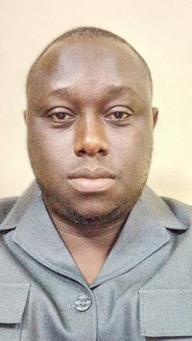
Students from IPR/IFRA in Mali
Introducing Souleymane Kone
Souleymane Kone, from Mali, is a agricultural engineer with a Master's degree in Integrated Soil Fertility Management. He is an assistant to the Ministry of Higher Education and Scientific Research.
Agroforestry practices have been adopted by West African farmers for a long time, but research support is needed to evaluate their contribution and/or to propose the best densities, by woody species, for optimal production. Currently, he is a PhD student of the SustainSahel Project on Work Package 4: Shrub based farming systems design at the IPR/IFRA - Rural Polytechnic Institute in Katibougou, Mali.
His doctoral research explores the effect of Faidherbia albida plantation density on the bio-physical-chemical properties of the soil and the productivity of sorghum and cowpea at the IPR/IFRA station. Recently, the Institute has been training Masters and Doctors in addition to Engineers, Licentiates and Senior Technicians, these new training courses require the presence of professors of advanced university level. He sees the acquisition of knowledge through this PhD as a great plus for me and the Institute in order to provide the best quality education for now and into the future.
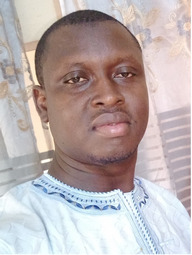
Introducing Mamadou Coulibaly
Mamadou Coulibaly holds a Master's degree in Pastoralism from the AGRHYMET Regional Centre in Niamey, he is a researcher at IER - Institute of Rural Economy, in Mali and is a doctoral student in the SustainSahel project. More precisely, he works in close collaboration with Work Package 6: Benefits of shrub foliage for livestock husbandry.
His thesis research theme is the study of the pastoral determinants of crop-tree/shrub-animal integration in the Katibougou agroecological zone in Mali. The general objective of the study is to contribute to the improvement of food security and the fight against poverty of family farms through the design of sustainable integrated systems. The most available woody forages preferred by animals according to the perception of agropastoralists will be selected for a palatability test and used to develop feed rations in the study area. The following results are expected:
- The most appropriate types of shrub foliage for feeding animals are identified;
- The diets based on palatable woody forages are established;
- The zootechnical performance of animals fed diets incorporating woody forages is determined;
- The effects of the formulated diets on the health of the animals and the quality of their products are determined;
- The effects of the formulated diets on the reduction of enteric greenhouse gas (GHG) emissions are determined.
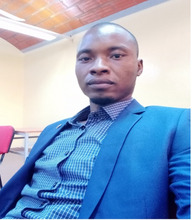
Students from University of Kassel, Germany
Introducing Siriki Fané
Siriki Fané joined the OPATS team as a PhD scholar in October 2020, and focuses on soil fertility and productivity aspects of CSL systems. He currently runs trials on ‘Implementing best foliage manuring strategies’ in Koulikoro, Mali and Saria, Burkina Faso, where he compares the benefits of direct shrub foliage mulching with foliage-derived animal manure by means of litterbag experiments. From October 2021 onwards he will be funded by a PhD scholarship of the German Academic Exchange Service (DAAD).
Siriki enjoys the strong collaboration of partners in the project. In the next years I intend to share my knowledge on indigenous shrub species as well as my experiences acquired at Uni Kassel with the project partners through field missions and workshops. He wants to learn techniques for analysing nutrients in soil and foliar biomass, as well as GHG emissions, which will be facilitated through the project. Overall, his PhD work will contribute knowledge towards a sustainable intensification of soil fertility and cereal production in the project’s target region.
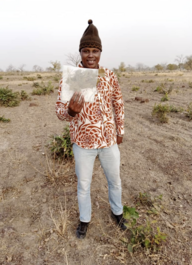
Students from UNB in Burkina Faso
Introducing Bessibié Bazongo
Bessibié Bazongo, born in Semaga in the Centre West region of Burkina Faso, holds a diploma in rural development engineering with a water and forestry option and a Master's degree in integrated natural resource management with a forestry production systems option from the UNB - Nazi Boni University in Burkina Faso. He is currently enrolled in a thesis at the Natural Sciences and Agronomy doctoral school at UNB in the framework of the SustainSahel project, within Work Package 4: Shrub based farming systems design. Mr Bazongo is an intern at the Institute of Environment and Agricultural Research of the Centre in Burkina Faso.
His research work focuses on the theme: Influences of the management methods of the shrubs Piliostigma reticulatum (DC.) Hochst. and Guiera senegalensis J.F.Gmel. on the characteristics of soils and the yield of Sorghum in family agrosystems in the northern Sudanian zone of Burkina Faso. Passionate about rural development, he wishes to contribute to making family agrosystems resilient to climate change.
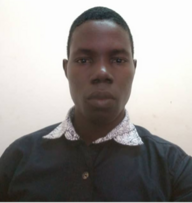
Introducing Yawo Joseph Sehoubo
Yawo Joseph Sehoubo, is a PhD student in the SustainSahel project, Work Package 4: Shrub based farming systems design of the NERA-Saria Institute. He is enrolled in the doctoral school of Natural Sciences and Agronomy of the Nazi Boni University of Bobo-Dioulasso. His thesis is on the theme: "Impact of agroforestry park management methods on the sustainability of agrosystem productivity in Burkina Faso".
After obtaining his Baccalaureate, he chose to study biological sciences. Two years later, he obtained my Diploma of General University Studies in Agronomy and joined the Institute of Rural Development. In the framework of the preparation of his diploma in rural development engineering, he worked on the theme "Floristic diversity and ecosystem services of plant formations in the Nazinga reserve and its surroundings in the south of Burkina Faso". For the Master's degree in Integrated Natural Resource Management, he worked on the topic "Contribution of local knowledge to the conservation of biodiversity in plant formations in western Burkina Faso".
His passion about the issue of natural resource management remains strong, so he undertook his current PhD thesis in the field of sustainable management of fragile agrosystems. The different objectives of this thesis are, among others:
- the characterisation of the woody structure of agroforestry parks,
- the identification of different agroforestry park management methods,
- the diachronic analysis of the evolution of agroforestry parks and the evaluation of the present and future impacts of agroforestry park management methods on soil and sorghum productivity in Burkina Faso.
These objectives are closely related to the main objective of the SustainSahel project, which is to improve the resilience of agricultural systems in the Sahel through the study and dissemination of appropriate crop, shrub/tree and livestock management practices. Yawo's future goals and ambitions are to become a teacher-researcher in Agroecology, to conduct studies in this field and to propose effective and efficient solutions for the management of agricultural systems.

Introducing Moussa Gnissien
Moussa Gnissien holds of a diploma in Rural Development Engineering / Agronomy and a Master's degree in Integrated Management of Natural Resources / Integrated Management of Soil Fertility speciality from the Institute of Rural Development UNB - Nazi Boni University. He is currently a doctoral student in Soil Science at Nazi Boni University. In this capacity, he is a part of the SustainSahel project, more specifically in Work Package 5: Impact of tree/shrub intercropping on soil ecology. Agroforestry was a major focus during his experience in engineering (shea parks) and Master's degree focussing on agroforestry as an agro-ecological practice. Agricultural research, and more specifically soil science research, is his passion that started in the second grade during winter fieldwork.
His PhD thesis work consists of determining the effects of different densities of five tree and shrub species on soil and crop yields. This work, which is being carried out on the station and on the farm, should make it possible to propose optimal densities of trees and shrubs that increase soil productivity. In the future, he aspires to enter the world of teaching or research and to contribute to training and rural development.

Introducing Linda Cletchio Gabriella Traore
Linda Cletchio Gabriella Traore, born in Ouagadougou, Burkina Faso, holds a Master's degree in Science and Technology of Agriculture, Food and Environment, option Livestock Systems from Montpellier SupAgro in France.
Within the framework of the SustainSahel project, specifically in Work Package 6: Benefits of shrub foliage for livestock husbandry, she is enrolled in the PhD school, Natural Science and Agronomy, option animal production systems at UNB - Nazi Boni University in Burkina.
Her research topic is the contribution of fodder plants to the improvement of animal production in the North Sudanian zone of Burkina Faso. The objective of her thesis is to improve the integration of woody plants in the diet of domestic ruminants, for sustainable and resilient production systems in the face of global warming. Her activities are carried out both in the field with the participation of producers and in an experimental station at the Direction Régionale de Recherches Environnementales et Agricoles du Centre/Saria (DRREA/Centre), to compare data from both environments.
After the thesis, she aims to continue research activities in the same direction to improve animal production systems in developing countries, the income of producers and the food security of rural populations.

 tap and then scroll down to the Add to Home Screen command.
tap and then scroll down to the Add to Home Screen command.